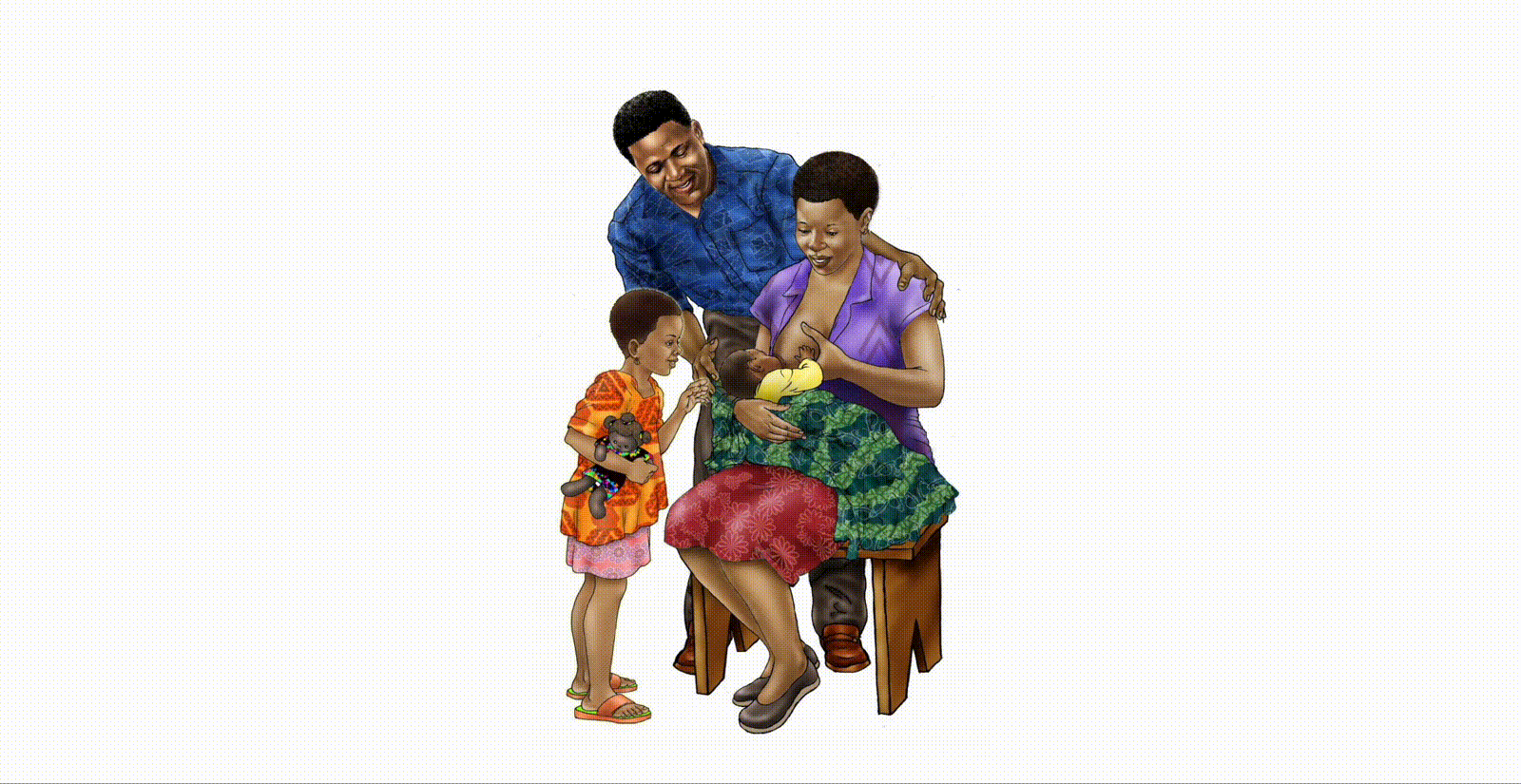JSI Develops Globally Relevant, Locally Adaptable Resource: The IYCF Image Bank
April 12th, 2024 | story
The first 1,000 days between pregnancy and a child’s second birthday are extremely important for cognitive and physical development. Good nutrition during this time is proven to establish a foundation for good health that lasts a lifetime. However, eating habits and feeding practices are deeply cultural, so creating effective tools that promote recommended practices for infant and young child feeding (IYCF) across cultures and contexts is no easy feat. Challenges such as language barriers, cultural sensitivities, and varying literacy levels all play a role in how well information and ideas are communicated and received.
First launched in 2010, the integrated set of counseling cards in UNICEF’s Community Infant and Young Child Feeding Counselling Package aims to address these challenges through high-quality, technically accurate, and easily adaptable illustrations of mothers and other community members demonstrating recommended feeding practices. Combined with training on improved counseling techniques and the effective use of visual materials, this well-designed and beautifully illustrated set of counseling cards equips community health workers and other frontline personnel with a practical job aid—one in which caregivers can see themselves giving their child their best start in life. The counseling cards communicate ideas visually and can be used to guide and inspire families to adopt optimal IYCF practices.

The photo-to-illustration process captures realistic proportions and technical content while removing distracting backgrounds. Credit: JSI
In 2017, through its USAID-funded global nutrition project SPRING, JSI collaborated with UNICEF to create a user-friendly digital collection of adaptable illustrations from the original set of counseling cards and several country adaptations. The IYCF Image Bank, as it came to be known, was immediately recognized as a unique global resource because it filled a critical gap in access to high-quality, technically correct design files that can be used directly or adapted to local needs and contexts.
JSI continued to expand the IYCF Image Bank under SPRING and its subsequent global nutrition project, USAID Advancing Nutrition. Today, the IYCF Image Bank has become a cornerstone of IYCF social and behavior change communication materials. To create the Image Bank, JSI applied library science and machine learning to develop an open-source website to organize and share digital image files. We also created a number of user-friendly tools to encourage use of the Image Bank’s photo-to-illustration process; this unique and powerful process produces technically sound illustrations that can be edited to reflect local contexts. JSI also supported a major revision of UNICEF’s Community Infant and Young Child Feeding Counselling Package, which UNICEF will launch globally on April 16, 2024. The updated package contains new illustrations, which we added to the Image Bank to facilitate future adaptations.

The Image Bank’s editable files make it easy to change the appearance of subjects while retaining the technical information. JSI adapted the generic image (center) for Niger (left) and Senegal (right). Credit: UNICEF/URC-CHS, JSI
Here’s what sets the IYCF Image Bank apart as a dynamic global resource:
The IYCF Image Bank now houses a collection of over 1,700 illustrations. After co-hosting the IYCF Image Bank with USAID and UNICEF for seven years, JSI officially transferred its ownership to UNICEF in February 2024, at the conclusion of USAID Advancing Nutrition. Over the past five years, more than 109,000 unique visitors from 191 countries have downloaded close to 27,000 images. By providing free, high-quality visual resources, the IYCF Image Bank helps organizations worldwide deliver culturally sensitive IYCF counseling and communication materials. This, in turn, contributes to improved infant and young child nutrition outcomes, a critical factor in ensuring healthy development and well-being.
We strive to build lasting relationships to produce better health outcomes for all.